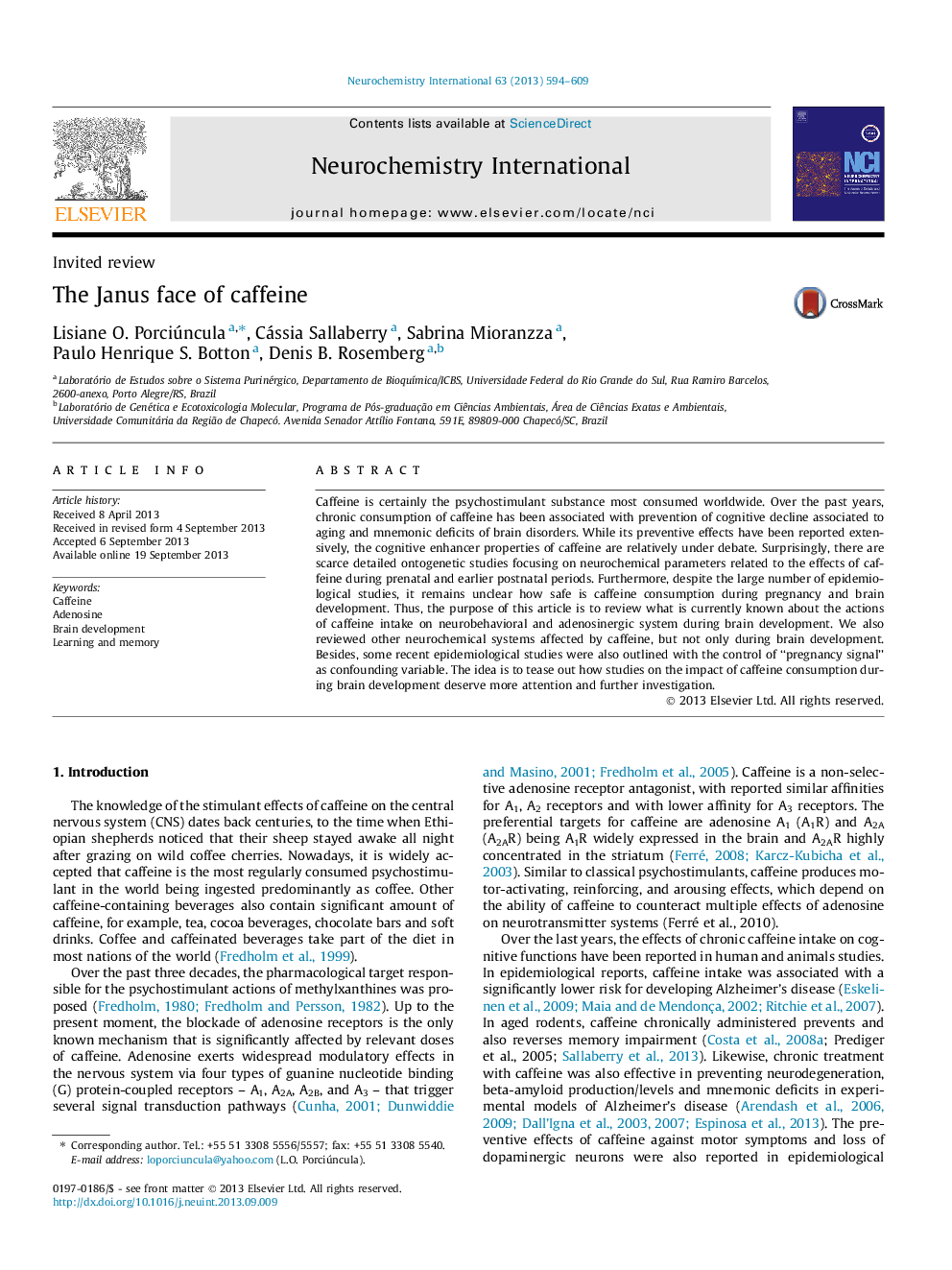| Article ID | Journal | Published Year | Pages | File Type |
|---|---|---|---|---|
| 2200619 | Neurochemistry International | 2013 | 16 Pages |
•Caffeine metabolism is highly dependent on development.•Behavioral parameters are affected by caffeine exposure during early periods of brain development.•Perinatal and postnatal exposure to caffeine causes modifications in the adenosine A1 receptors.•Neurotransmitters systems are affected by caffeine consumption.•Recent epidemiological studies reinforce the lack of consensus on the caffeine effects during pregnancy.
Caffeine is certainly the psychostimulant substance most consumed worldwide. Over the past years, chronic consumption of caffeine has been associated with prevention of cognitive decline associated to aging and mnemonic deficits of brain disorders. While its preventive effects have been reported extensively, the cognitive enhancer properties of caffeine are relatively under debate. Surprisingly, there are scarce detailed ontogenetic studies focusing on neurochemical parameters related to the effects of caffeine during prenatal and earlier postnatal periods. Furthermore, despite the large number of epidemiological studies, it remains unclear how safe is caffeine consumption during pregnancy and brain development. Thus, the purpose of this article is to review what is currently known about the actions of caffeine intake on neurobehavioral and adenosinergic system during brain development. We also reviewed other neurochemical systems affected by caffeine, but not only during brain development. Besides, some recent epidemiological studies were also outlined with the control of “pregnancy signal” as confounding variable. The idea is to tease out how studies on the impact of caffeine consumption during brain development deserve more attention and further investigation.
